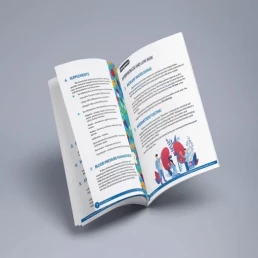As we delve deep into countless medical journals to uncover the latest on Integrative Medicine’s approach to kidney health, we are always reminded of the value of your time. Our commitment remains steadfast in curating and succinctly summarizing these vital studies for you. Welcome to the November Research and News.
Impact of Resveratrol on Endothelial Function in CKD and Diabetes Patients
In a randomized controlled trial by Gimblet et al., the effects of resveratrol, a cardioprotective compound, were tested on patients with both chronic kidney disease (CKD) and diabetes—a group particularly vulnerable to cardiovascular diseases due to impaired endothelial function.
The study’s findings were optimistic, showing a significant improvement in endothelial function after a 6-week period of supplementation with 400 mg/day of resveratrol, as measured by brachial artery flow-mediated dilation.
Why is this important?
The endothelium plays a vital role in vascular health, and its dysfunction is a precursor to atherosclerosis.
The improvement seen with resveratrol suggests that it might be a viable supplement to improve vascular health in CKD patients with diabetes without altering other cardiovascular risk factors such as blood pressure or HbA1c levels.
This could pave the way for a new adjunct therapy that targets a significant risk factor for mortality in this patient population, potentially improving clinical outcomes and quality of life.
Urinary Oxalate Levels as a Predictor for CKD Risk
A large-scale, longitudinal observational study by Puurunen et al. has identified 24-hour urine oxalate (UOx) excretion as a potential risk factor for incident chronic kidney disease (CKD).
Analyzing data from over 426,000 individuals without CKD at baseline, the study found that higher levels of UOx were associated with an increased risk of developing CKD, with an even greater risk observed among individuals with malabsorptive conditions.
Why is this important?
Understanding the risk factors for CKD is crucial for early intervention and prevention. This study suggests that UOx could be a modifiable risk factor, which, if addressed, might help to reduce the incidence of CKD.
The implications are significant for both patient lifestyle modifications and potential clinical interventions. For patients with elevated UOx levels, particularly those with malabsorptive conditions, monitoring, and possible dietary modifications could become part of CKD preventative strategies.
Join us to end the kidney disease epidemic
Modulating Retinoic Acid Signaling for Acute Kidney Injury Protection
Yang et al. have made a significant discovery that reactivation of RAR signaling occurs in proximal tubular epithelial cells (PTECs) during acute kidney injury (AKI).
By genetically inhibiting RAR signaling in these cells, the study demonstrates protection against AKI in experimental models. Interestingly, this inhibition is linked to increased PTEC injury markers such as Kim1, which paradoxically contributes to beneficial effects through enhanced apoptotic cell clearance and subsequent cellular repair processes.
Why is this important?
Acute kidney injury is a critical concern for patients with CKD, as it can exacerbate the progression of the disease.
This research provides insight into a counterintuitive approach where inhibiting a pathway often associated with development can protect adult kidney cells from injury.
The findings open up new avenues for therapeutic interventions in AKI and possibly CKD, focusing on the modulation of RAR signaling and the enhancement of the body’s natural repair mechanisms.
This approach could potentially alter the treatment landscape for patients at risk of AKI due to sepsis or other causes.
Exercise as a Modulator of Kidney Biomarkers in Older Adults
The LIFE trial, as explored by Sheshadri et al., delved into whether a structured moderate-intensity exercise program could affect biomarkers indicative of kidney health in sedentary older individuals.
Over 1,381 participants aged 70-89 were assessed through a randomized controlled trial contrasting exercise with health education over two years.
Why is this important?
While randomization to the exercise program did not uniformly improve kidney biomarkers across the group, higher physical activity levels were positively correlated with improvements in specific biomarkers associated with glomerular injury, tubular function, and repair.
This suggests a more nuanced relationship between exercise and kidney health, where individual increases in activity can lead to tangible benefits for kidney function.
These findings underscore the potential for structured physical activity to serve as a non-pharmacological strategy to combat kidney health deterioration in the aging population.
Such insights are particularly relevant for preventive health strategies in CKD, where maintaining kidney function is critical.
Review Article of the Month
Oxidative stress and the role of redox signaling in chronic kidney disease
The review article published in Nature Reviews Nephrology examines the complex role of oxidative stress and redox signaling in the progression of chronic kidney disease (CKD).
Reactive oxygen species (ROS), while essential at low levels for various cellular functions such as signal transduction and immune responses, can be detrimental in excess.
High levels of ROS are implicated in the development and exacerbation of CKD. Attempts to use antioxidants to curtail ROS and combat CKD have been largely unsuccessful, pointing to the need for a more refined approach.
Recent advancements in understanding the specific molecular interactions of ROS and their targets suggest the possibility of developing targeted therapies. These therapies would aim to selectively modulate ROS-mediated pathways, offering a more sophisticated and potentially effective approach to treating CKD.
You can download the full PDF here.
Join here to receive FREE monthly updates on the latest research in Integrative Nephrology and tips on managing kidney disease straight to your inbox.
We would love to hear your feedback. Let us know what you think of these educational materials and if you like us to focus on specific topics. Please email us at info@inkidney.com.






